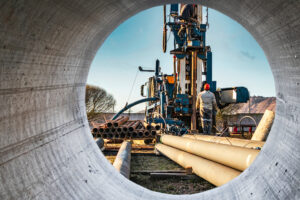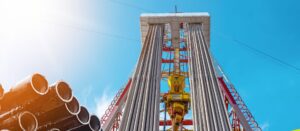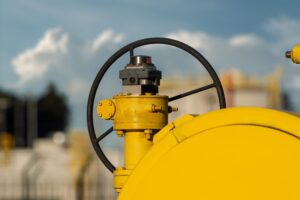One of the most essential parts of the piping systems in oil and gas exploration and mining industries are pipe protector products. More than 90% of failures of the pipe systems in these industries occur in the connections, according to industry analysis, yet any connection failure signifies a larger end problem for safety and productivity. In an industry that heavily involves economic, environmental and human capital risks, having a reliable assurance of quality and insurance for the end user is imperative.
In accordance with the ISO (international Standards Organization) which monitors compliance with standards in accordance with good business practices. Producers and manufacturers of thread protectors and other pipe protector products are held to a universally recognized quality standard of ISO 9001. Because of the critical role they play in preventing pipe connection failures, this international standard is held though quality management services across all sectors and business types.
Any organization must have a quality management system in place in order to achieve the ISO 9001 certification. There are several criteria that this system has to meet, including systems approach to management, customer focus, continuous improvement and process approach. The system must also include methods of verifying product quality and mechanisms for dealing with customer complains and problems. Companies must also show how their systems comply with ISO requirements in the form of a quality manual.
Companies involved in manufacturing products for the petrochemical, natural gas and petroleum industries must also be compliant with the quality management standards set by the American Petroleum Institution, because ISO 9001 is applicable over all business sectors. Certain aspects of the oil and gas industry that are addressed by API standards include fire protection and safe, production and exploration and marine transportation. The API will also handle drilling, offshore production, structural pipe and pipeline issues along with environmental concerns.
Because there is an overlap between the API and ISO standards, many products are permitted to have a dual certification, given that said company submits a quality manual and demonstrate the ongoing ability to meet the technical requirements, with the API standard places more of an emphasis on risk assessment and management.
Ideally, manufacturers of thread and pipe protectors should also obtain ISO 14001 certification too. This standard sets the framework that companies should follow and acts as the standard for environmental management systems to ensure that an environmental system is fully effective and monitored. Environmental concerns are important enough to both employees, stakeholders and customers that it is ideal that its impact is being monitored on a consistent basis.
In any industry where drilling is utilized, large investments are regularly at stake to say nothing about the lives at risk. Quality and safety are paramount in the design and manufacturing of pipe protection; OCTG certifications help ensure that recognized standards are being me at each stage and that every party involved can be confident in the reliability and safety of their products.
Quality assurance is an important stage in the pipe protection industry for many reasons. If you would like more information about MSI’s own quality guarantee, contact us today!




